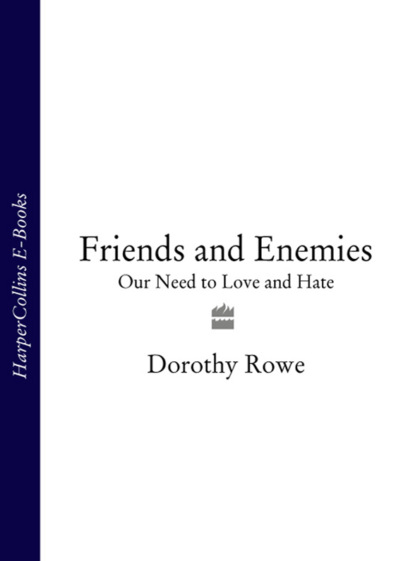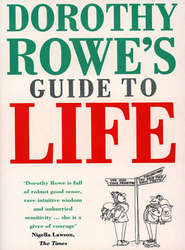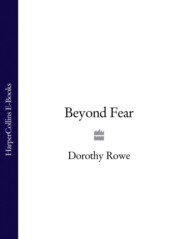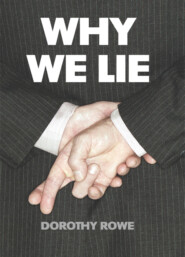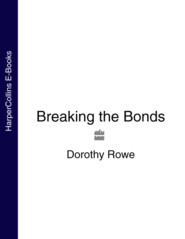По всем вопросам обращайтесь на: info@litportal.ru
(©) 2003-2024.
✖
Friends and Enemies: Our Need to Love and Hate
Автор
Год написания книги
2018
Настройки чтения
Размер шрифта
Высота строк
Поля
The conversation then moved on to a recent incident when a woman who had been informing for the police was caught and necklaced. William Finnegan wrote,
Ruth turned to me and said, emphasizing every word, ‘I think the necklace is a good thing.’ Her eyes were full of strange, sad anger. She went on, ‘It makes people think twice before they will collaborate, even if they have no job and the system offers them money to inform. We are unarmed. They are armed. We must take and use what little weapons we have. Informers have been the system’s greatest weapon for a very long time. Finally, now, we are stopping them.’
(#litres_trial_promo)
There is no way of knowing how the woman who was caught informing interpreted the events which followed, but, just as the act of necklacing can be interpreted in at least two different ways, so the act of being scapegoated can be interpreted in at least three different ways, each then having a different effect on the meaning structure of the victim.
Victims might accept the verdict of the group and believe themselves to be wicked and deserving the inevitable punishment. This punishment might be viewed with utter dread because it is ultimate and for ever, a hellfire from which no escape is possible. Or the punishment might be seen as an expiation of sins; out of such hellfires the person will be redeemed. Both primitive pride and moral pride may prefer the second interpretation.
Victims might see themselves as unjustly charged and the punishment totally undeserved. This may well be the case. Groups are not infallible. Or it might be that primitive pride has come to the fore, determined to maintain a sense of feeling good about yourself no matter what the evidence against you. After the people of the Philippines deposed President Marcos, who had enriched himself at the expense of his country, his wife Imelda demonstrated that she was a past mistress of this kind of interpretation. She always insisted that everything she did was for the good of her people and that she was, actually, very poor, despite the fact that she still lived in a most luxurious fashion.
Choosing the ‘I am innocent’ interpretation can arouse in the person great anger and resentment and even paranoia. Or it can lead to a third interpretation, one which Imelda Marcos has often demonstrated – that of being a martyr.
Groups often need martyrs and martyrs always need groups. Martyrs might feel themselves to be alone and isolated, but they need a group to play the support role in the drama of their lives. The group, or at least some influential members of the group, must first heap scorn and suffering upon the martyr before casting him out. (Men as martyrs usually choose a very public role for their martyrdom while women down the centuries have found a special niche as domestic martyrs. For domestic martyrs, being taken for granted by those for whom you sacrifice yourself is the equivalent of scorn and suffering and being cast out.) In the course of time members of the group must discover the error of their ways, whereupon they repent and forever revere the martyr. A martyr is, by definition, superior and good, therefore any group which has a martyr must itself be superior and good.
To turn yourself from a scapegoat into a martyr you must have the opportunity to say a few last words. The victims of necklacing never did. Some of the most fraught and painful testimony at the Truth and Reconciliation Commission hearings was from the relatives of those who had been necklaced. We need to learn how to live together in groups without resorting to scapegoating in order to maintain group solidarity, but we will not be able to do this until we can deal effectively with our fear of being prey.
The history of religious and national groups is full of scapegoats and martyrs. The nation state was a product of the eighteenth and nineteenth centuries. Nationality is now an idea that has common currency, but not everyone feels the need to claim membership of a national group.
Nationality becomes a vital part of a person’s identity when little else is available to sustain that person’s pride. If you feel that you have considerable control over your own life, if you have work which bolsters your identity and you have an income which meets your needs, nationality becomes an add-on extra, something you can assume when your national football team looks like winning the World Cup and abandon when you go abroad and wish to demonstrate your international skills. However, when you feel that you are utterly helpless, that your fate is in the hands of other people, even though you might have work which bolsters your identity and an income which meets your needs, and even more so if you do not have such work and income, nationality can become vital to the integrity of your meaning structure. Thus Jon Snow, an acclaimed and successful journalist and broadcaster, could abandon the idea of nationality while my friend Dusan, professor of psychology at Belgrade University, held on to his. When I visited Dusan in the summer of 1998 he told me that he felt helpless in the political and economic upheavals Yugoslavia had suffered. He had always loved his country and especially his city, Belgrade, but the break-up of Yugoslavia and the following war intensified his feeling of being a Serb. I found this intensity most striking in contrast to the nonchalant way psychologists in England and Australia treat their nationality.
Then I remembered how intensely we all felt about nationality during the Second World War. It was vitally important both to one’s meaning structure and to one’s physical survival to identify with the nation which was winning the war and to avoid being identified as belonging to an enemy nation. The history of nations is a history of war. Every nation has to invent a national story, and that story becomes its official history, where the great milestones are wars. In official histories Britain looked to Crécy, Agincourt and Trafalgar; France looked to Marengo, Austerlitz and Jena; Serbia to Kosova; America to Lexington and Bunker Hill; Australia to Gallipoli and the Somme. Such events defined the nation, but the event which defined the nation did not have to be a victory. The Serbs were defeated at Kosova, the Australians at Gallipoli. Defeats mean sacrifices.
The story goes that on the eve of the fateful Battle of Kosova in 1389 Prince Lazar told his men,
‘It is better to die in battle than to live in shame. Better it is for us to accept death from the sword in battle than to offer our shoulders to the enemy. We have lived a long time in the world: in the end we seek to accept the martyr’s struggle and to live forever in heaven. We call ourselves Christian soldiers, martyrs for godliness to be recorded in the book of life. We do not spare our bodies in fighting in order that we may accept holy wreaths from that One who judges all accomplishments. Sufferings beget glory and labour leads to peace.’
(#litres_trial_promo)
The Serbs have long memories. Six hundred years later Slobodan Milošovic, President of the Yugoslav Republic, could persuade the Serbs that the sacrifices at Kosova justified many more sacrifices.
In 1922 the Sydney Morning Herald declared that ‘The Gallipoli campaign has been described as “the most glorious failure in military history”’, and went on to ask, ‘But was it failure to Australia? It has made us a nation. Was the price worth paying? Are not nations like individuals? If the nation is to be born, if the nation is to live, someone must die for it.’
(#litres_trial_promo)
Вы ознакомились с фрагментом книги.
Приобретайте полный текст книги у нашего партнера:
Приобретайте полный текст книги у нашего партнера:





